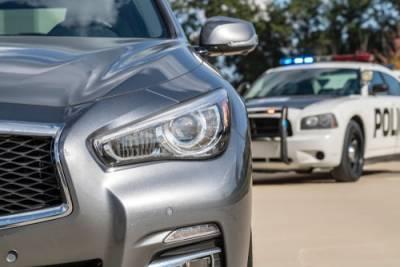What to Expect During an Illinois DUI Stop
 It is always a scary feeling to see red and blue flashing lights in your rear-view mirror, especially if you know you’ve had a few drinks before getting behind the wheel. A lot of people think that they will be arrested for a DUI offense if they have a blood alcohol content (BAC) over the legal limit and so they refuse the necessary tests during the traffic stop.
It is always a scary feeling to see red and blue flashing lights in your rear-view mirror, especially if you know you’ve had a few drinks before getting behind the wheel. A lot of people think that they will be arrested for a DUI offense if they have a blood alcohol content (BAC) over the legal limit and so they refuse the necessary tests during the traffic stop.
It is within a person’s rights to refuse the breathalyzer test and the typical field sobriety test during the traffic stop, however, that would result in an automatic one-year suspension of a driver’s license and a possible arrest where the test will be administered at the police station.
However, an arrest is not usually made unless the officer knows for sure that a driver is drunk. How do they figure that out without a chemical or field sobriety test? They observe a driver’s behavior, movements, smells, and use techniques to properly determine the sobriety.
Driver Interview Process
A police officer starts observing drunken behavior before he/she even stops the vehicle. They look for signs such as swerving, uncontrolled braking or accelerating, and delayed reactions which could be evidence of driver drunkenness.
Then, they will perform a traffic stop to assess the status of the driver. The officer will sometimes not ask for the driver to get out of the car at first, but instead, they will conduct a driver interview. During this time, an officer will:
- Look for signs of drunkenness: slurred speech, glossy eyes, alcohol smells.
- Ask difficult questions or ask a driver for multiple documents at the same time.
- Observe the motor skills of the driver. Whether or not they are fumbling for documents.
- Ask questions while a driver is looking for their license to see how easily distracted the driver becomes.
- Ask the driver to recite part of the alphabet or answer questions they would normally be able to answer.
- Ask the driver to count down from 15 to 1.
- Ask the driver to verify how many fingers the officer is holding up.
Depending upon the answers of the driver and the observations the officer collects, the officer will then ask the driver to exit the vehicle for a field sobriety test.
Typical Field Sobriety Test
It is within a driver’s rights to not perform a field sobriety test, but if the officer already has clear evidence of drunkenness, they can still perform an arrest without a test.
If a driver does accept the field sobriety test, there are three general exams the officer will ask the driver to perform:
- Horizontal Gaze Nystagmus: the officer will have the driver follow their finger with only their eyes. If the driver moves their head or has a "jerky" response in their eyes, they fail the test.
- Walk-And-Turn: the officer will ask the driver to walk in a straight line for a number of steps, turn, and walk back the same amount of steps. If the driver has to use their arms for balance, makes an improper turn, stumbles, or cannot walk in a straight line, they fail the test.
- One-Leg Stand: the officer will ask the driver to raise one foot off the ground with their arms at their sides. Then, the driver will count up from 1,000 until told to stop. If the driver falls over, uses their arms for balance, or cannot count, they fail the test.
Officers will fully explain and demonstrate each test before they ask the driver to perform the actions. If the driver does not follow the directions completely, they will fail the field sobriety test.
Often people refuse the field sobriety test because they can be inaccurate depending on the conditions of the road or the physical ability of the driver. Those who are unable to lift a leg and be balanced even when sober can fail the one-leg stand and face possible arrest because of it.
Contact an Elgin, IL DUI Attorney
Drivers who have been wrongfully arrested on a DUI charge or those who have refused a field sobriety test can face many consequences including the loss of a driver’s license, fines, and even jail time for multiple offenders. The lawyers of the Law Office of Brian J. Mirandola can help defend a driver’s rights and build a defense to avoid any negative conviction. To schedule a free consultation with a Kane County DUI lawyer, call our office at 847-488-0889.
Source:
https://www.isp.state.il.us/docs/sfst_1day_refresher.pdf








